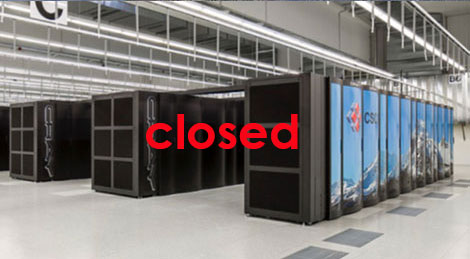
Proposals are hereby invited under the SOLARNET Transnational Access Programme for computing time at the Piz Daint supercomputer at CSCS, Switzerland. The proposed scientific projects should be relevant for high-resolution solar physics.
Proposals will be handled by the EAST TAC, a common European time allocation committee installed by the European Association for Solar Telescopes. The nationality rules of the access programme require that the PI and at least half of the Co-I’s of a proposal are from the European Union or associated countries or the UK (for this call Switzerland does not count as an associated country). New users of the facility are encouraged to apply.
Data produced in the SOLARNET Transnational Access programme by the Piz Daint supercomputer will ultimately become part of the database of numerical models of the Hinode Science Data Centre Europe in Oslo and shall become publicly available after a one-year embargo period after completion of the production project.
Interested PIs should send a preliminary proposal as soon as possible. The preliminary proposal should only contain a project title plus names and contact information of the PI and any Co-I’s. One user per group will then be given access to Piz Daint to perform the benchmarking that is a compulsory part of the applications. The process of adapting your code to run on Piz Daint and do the benchmark takes some time. So, start early!
Proposals will first be scientifically evaluated and ranked by the EAST TAC. The top-ranked proposals will then undergo technical assessment by CSCS to prove that they can run efficiently before final acceptance.
Accepted projects will be allocated on Piz Daint, which is the flagship system of CSCS, the Swiss National Supercomputing Centre. It is a hybrid Cray XC40/XC50 system, i.e. a major part of the machine is constituted of nodes equipped with GPUs. Therefore, projects being able to make use of this technology are strongly encouraged. For more detailed information, see https://www.cscs.ch/computers/piz-daint.
The allocation period is 1 year, starting Jan 1, 2022, and we expect a total of up to 700,000 node hours to be available to all accepted projects. Project proposals should be no longer than 10 A4 pages including graphs and references, and must contain the following information:
– Abstract
– Background and significance
– Scientific goals and objectives
– Description of the research methods, algorithms, and code parallelization approach (including memory requirements)
– Representative benchmarks and scaling
– Performance analysis (see also https://user.cscs.ch/access/report/)
– Resource justification (annual node hours and disk space)
– Project plans: tasks and milestones
– Results from previous allocations
Please note that lack of any of the mandatory parts may result in rejection of the proposal.
A full proposal should consist of a SOLARNET form and a proposal text following a template that can be found at https://user.cscs.ch/access/report/technical_report_template.pdf.
All full proposals should be sent via email to east-tac@astro.su.se and must be received by September 30, 2021 at 23:00 UT.
The preliminary proposal should be sent to east-tac@astro.su.se as soon as possible, but not later than May 31, 2021. This need only contain a title plus names and contact information for the PI and any Co-I’s. Download the preliminary proposal files here.
SOLARNET is funded by the European Union’s Horizon 2020 research and innovation programme under grant agreement No. 824135.
